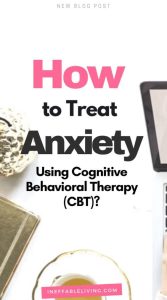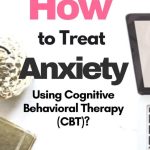Introduction: Can Xanax Help with Sleeping Problems?
When it comes to treating sleeping problems, many people seek quick solutions that promise immediate relief. One such solution that is often considered is Xanax, a medication known for its calming effects on anxiety. While it’s primarily prescribed for anxiety and panic disorders, some individuals wonder if it can also help with sleeping problems. If you’ve been considering buy xanax online for insomnia or other sleep-related issues, it’s essential to understand its potential benefits, limitations, and risks before using it. Xanax Overnight Delivery With Fedex
What is Xanax?
An Overview of Xanax
Xanax, or Overnight xanax alprazolam , is a medication that belongs to the benzodiazepine class of drugs. It works by enhancing the effects of a neurotransmitter called gamma-aminobutyric acid (GABA), which has a calming effect on the brain and nervous system. While Xanax is primarily used to treat anxiety disorders and panic attacks, it can also have a sedative effect, which may make people wonder if it can help with sleeping problems.
How Xanax Works in the Body
Xanax’s calming effect on the brain can help reduce feelings of anxiety, stress, and tension. When these feelings are alleviated, individuals may experience relief from the physical symptoms that interfere with sleep, such as racing thoughts, restlessness, and muscle tension. As a result, some people find that Xanax helps them fall asleep more easily, especially if anxiety is the primary cause of their sleep disturbances.
Can Xanax Be Used for Sleeping Problems?
Short-Term Use of Xanax for Sleep
Xanax may be helpful in the short term for people who are experiencing sleep issues due to anxiety. If you’re dealing with stress or panic that’s preventing you from falling asleep, Xanax might provide temporary relief by helping you relax enough to sleep. However, this doesn’t mean that buy alprazolam online is a solution for chronic insomnia or other long-term sleeping problems.
Long-Term Use and Risks
While Xanax can provide quick relief for sleep problems, long-term use is not recommended. Regularly using Xanax for sleep can lead to a number of issues, including tolerance, dependence, and addiction. Over time, your body may require higher doses to achieve the same sedative effect, increasing the risk of harmful side effects.
Additionally, using Xanax to manage sleeping problems can mask the underlying causes of insomnia, such as sleep disorders or psychological conditions. If you continue to rely on Xanax without addressing the root cause of your sleep problems, the issue may persist and worsen.
Potential Side Effects of Xanax for Sleep
Short-Term Side Effects
In the short term, overnight alprazolam bars online can cause drowsiness, dizziness, and impaired coordination. These side effects are what make
alprazolam online overnight effective as a sleep aid for some people. However, they can also be dangerous, especially if the individual needs to perform tasks that require full attention, such as driving.
Long-Term Side Effects
Using Xanax for extended periods can have more serious side effects. Some of the most common long-term effects include:
- Memory problems and cognitive impairment
- Physical dependence and withdrawal symptoms if the drug is stopped suddenly
- Increased risk of addiction
- Mood changes, including depression or irritability
- Decreased ability to concentrate
Because of these potential risks, Xanax is generally not recommended as a long-term solution for sleeping problems.
Alternatives to Xanax for Sleeping Problems
Prescription Sleep Medications
If you are experiencing chronic sleeping problems, there are other medications that are specifically designed to treat insomnia. Some of the most commonly prescribed sleep aids include:
- Zolpidem (Ambien)
- Eszopiclone (Lunesta)
- Ramelteon (Rozerem)
These medications are typically safer for long-term use compared to Xanax, as they are specifically intended to help with sleep rather than anxiety. However, they also come with risks and should only be used under a doctor’s supervision.
Cognitive Behavioral Therapy for Insomnia (CBT-I)
Cognitive Behavioral Therapy for Insomnia (CBT-I) is a non-drug treatment that has been shown to be effective for treating chronic insomnia. CBT-I focuses on changing the thoughts and behaviors that contribute to sleep problems, helping individuals establish healthier sleep habits and improve their overall sleep quality. This therapy is considered one of the most effective treatments for insomnia without the risks associated with medication.
Natural Remedies for Sleep
For those who prefer non-pharmaceutical options, several natural remedies may help with sleep:
- Melatonin supplements: Melatonin is a hormone that helps regulate the body’s sleep-wake cycle.
- Valerian root: An herbal remedy that has sedative properties and may help with insomnia.
- Magnesium: This mineral is known to relax the muscles and nervous system, promoting better sleep.
- Aromatherapy: Lavender essential oil is commonly used to help relax and improve sleep quality.
These remedies are generally considered safer for long-term use than Xanax and may offer a natural solution for improving sleep.
The Bottom Line: Should You Use Xanax for Sleeping Problems?
Xanax may provide temporary relief for sleeping problems related to anxiety, but it is not a suitable long-term solution. The risks of tolerance, dependence, and addiction make it an inappropriate choice for individuals looking to manage chronic insomnia or other sleep disorders. If you are struggling with sleep problems, it’s essential to work with a healthcare professional to explore safer and more effective treatment options, whether that involves medication designed for sleep, therapy, or natural remedies. alprazolam online overnight
If you’re considering using Xanax for sleep, make sure to consult your doctor to determine the best approach for your specific situation.












